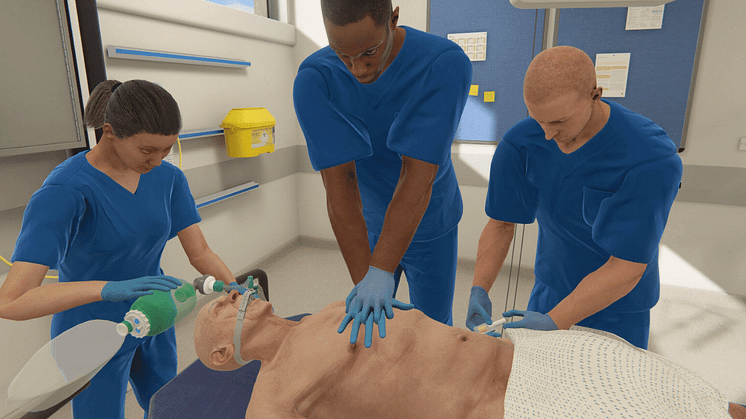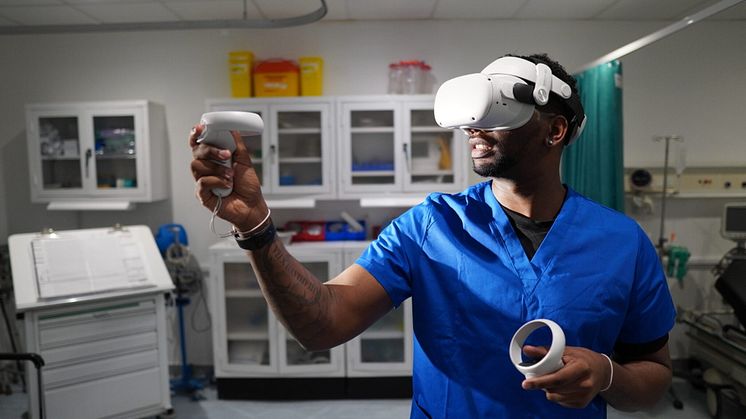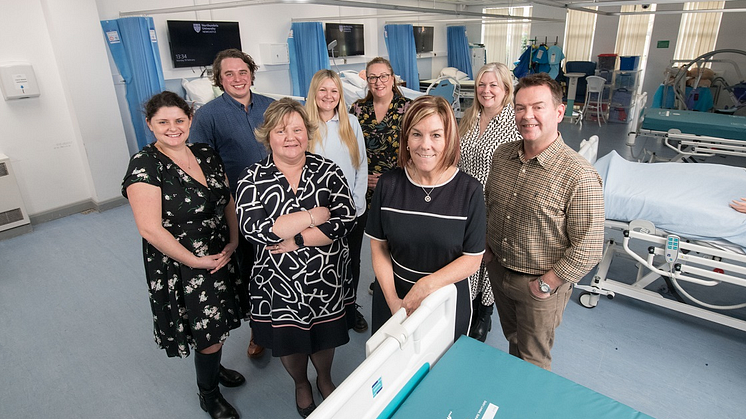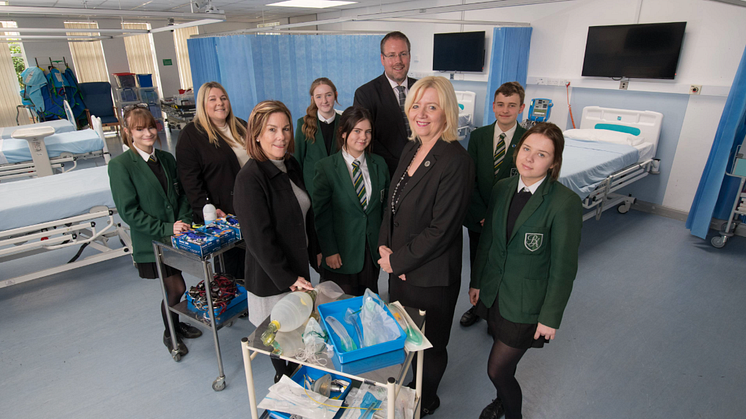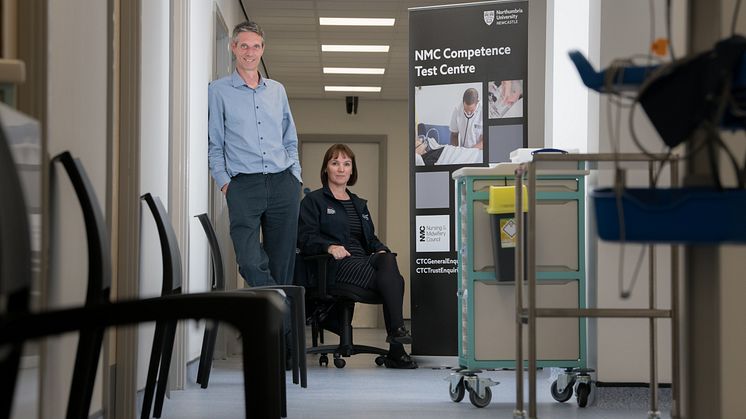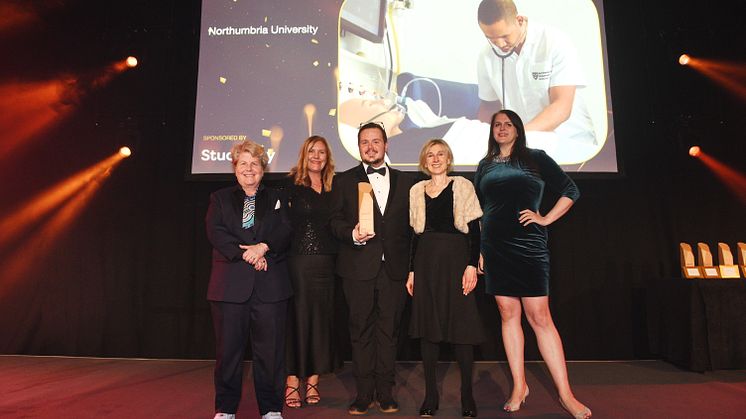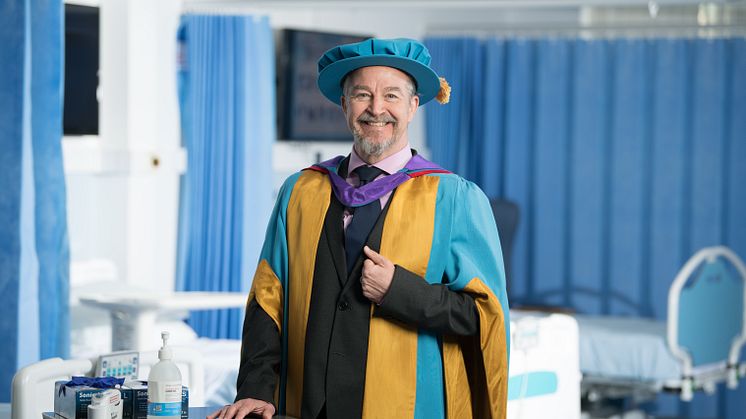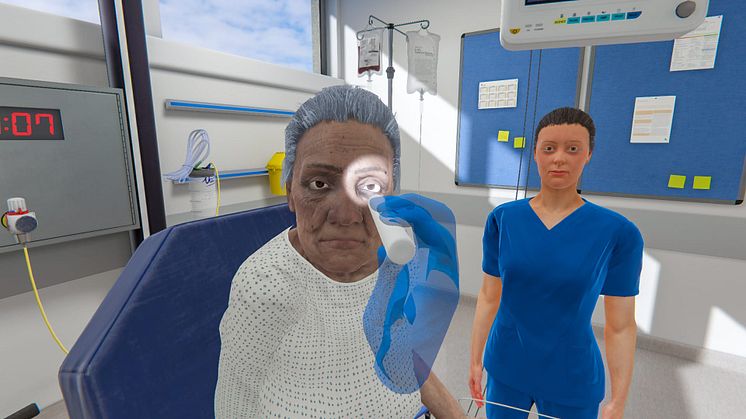
Press release -
Simulated learning using virtual reality recognised as example of best practice in nursing education
Northumbria University’s innovative use of virtual reality and simulation technologies in nursing education has been highlighted as an example of best practice in the UK.
After investing in a new state-of-the-art virtual reality learning platform specially designed for healthcare training, a team from the University’s Department of Nursing, Midwifery and Health designed a simulated practice placement programme for nursing students which was called SkillsFest.
Five hundred second-year students across all four fields of nursing took part in a huge range of specialist simulation-based education that covered a range of conditions including the cardiovascular, respiratory, musculoskeletal, digestive, genitourinary and nervous systems.
In just one month, students were able to complete almost 13,000 simulation sessions across 31 different clinical cases, ranging from sepsis to respiratory distress with patients of all ages.
All of the simulation scenarios were representative of situations students may face while dealing with patients, and ensured they could display and rehearse skills needed to meet Nursing and Midwifery Council requirements.
The programme was such a success that Northumbria University has now been marked as a flagship institution by leading technology company Oxford Medical Simulation (OMS), which is now encouraging other universities to deliver simulation education in similar ways.
“The team at Northumbria University are leading the way in providing placement hours with VR for a large cohort of students. The nursing department have successfully embedded OMS technologies into a multi-year programme, providing learners with the opportunity to manage care in a realistic, immersive, and safe clinical environment,” said Jessica McGahan, Head of Customer Success at OMS.
Virtual reality and simulation technologies are used in nursing education to provide students with the opportunity to develop and practice clinical skills in a safe environment on campus before they go out to placement in hospitals and care settings.
Demand for simulation-based education has increased significantly in recent years, particularly after student placements were interrupted during the pandemic.
A team of experts in simulated learning practice at Northumbria University secured an award of £300,000 from Health Education England to find new ways to use simulation and immersive technologies to support students on healthcare programmes. Working with students and external partners including local NHS Trusts and the Nursing and Midwifery Council, they created the SkillsFest programme.
Barbara Davies, Associate Professor in Nursing at Northumbria University, led the team. She explained: “One of the greatest benefits of simulation-based education is that it affords opportunities to practice and rehearse skills in situations that faithfully replicate key features of the real-world environment.
“Oxford Medical Simulation were so impressed with the way we collaborated with external partners to create the programme, and with the number of students who took part, that they are now championing Northumbria University as an example of innovative practice for other universities to learn from.”
Dr Claire Ford, Assistant Professor for Pre-Registration Adult Nursing, added: “Feedback from the students and partners who took part in our pilot programme was overwhelmingly positive and has led to this programme becoming embedded into the undergraduate curriculum. Next year it will also be expanded into the master’s curriculum too.
“We are exceptionally proud of our innovation and we believe that we have developed a high-quality model of simulated practice learning that we are immensely proud to share. We are delighted to be recognised as a centre of excellence in simulation-based education.”
Northumbria University is one of the largest centres for healthcare professional education in the North of England, offering a range of specialist degree and CPD programmes across many areas of nursing, midwifery, operating department practice, physiotherapy and occupational therapy. The University’s Children’s Nursing programme is ranked third in the UK in the latest Guardian University Guide.
Topics
Categories
UNIVERSITY OF THE YEAR 2022 (Times Higher Education Awards)
Northumbria is a research-intensive university that unlocks potential for all, changing lives regionally, nationally and internationally. Find out more about us at www.northumbria.ac.uk
--- Please contact media.communications@northumbria.ac.uk with any media enquiries or interview requests ---







